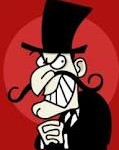A guest post by Dean Wesley Smith

I’ve talked about this on my blog a few times in different ways, but I noticed a few of you have mentioned this “got to hurry” problem, so I figured it was time again.
And no doubt, as I did last week on my first visit to the Superstars Writing Seminar, I may ruffle a few feathers.
What do I mean by being in a hurry?
For some reason, almost all new professional writers have no sense of time in publishing. And no sense of the amount of time it takes to learn the craft and the business. I hear over and over again how fresh writers need to find a way to cut through the “noise” out there, how they need to “promote” their first or second novel, and how they don’t understand why they don’t sell more.
And I hear all the time how writers like me or Kris or Kevin Anderson or Dave Farland or Eric Flint have this huge advantage over beginning writers. But don’t think our advantage is because our names are known. Nope. In fact, often being known hurts us more than it helps. My bestselling novels are not under “Dean Wesley Smith” because of all the media work I did under that name. My bestselling novels are hidden pen names in both the thriller and mystery genres. Names that started fresh. Names that nobody knew.
But we do have an advantage over beginning writers.
Yes, I said it. We experienced old-timers have a huge advantage. We have taken the years and decades to learn how to write better stories and we are all still working to learn. (Do you think the only reason we teach is to help young writers? That’s a big part, sure, but mostly it’s so we can keep learning as well.)
That’s right. Shocking as it may seem, writing better novels and stories–stories that fans want to read–makes us better known. It is not promotion or some silly trick. We sell more because we write better stories.
It really is that simple.
Learning the craft of fiction writing comes from listening to others talk about their ways of doing things, or reading how-to-write books, or studying what other writers do, then putting that information out of your front brain.
In other words, learn it and then forget it. Just go back to writing, and trust that the knowledge will come out of your fingers when you need it.
Sometimes it doesn’t happen for a novel or two. And then suddenly your writing is better and you don’t even know why–but your readers will see it.
Sounds kind of silly, huh? But it’s the way it works. And that method of writing and learning how to write better stories TAKES TIME.
My first published novel was my third written novel, and by the time I had written it, I had already sold over fifty professional-level short stories. Now understand, I sold my first short story in 1975 and didn’t sell my first novel until 1987. A long twelve years, and a thousand-plus rejections.
But with indie publishing, writers today think they can put up their debut novel and sell thousands of copies in the first month. And when they don’t, they either stop writing, or get upset, or blame it on the fact that they have no name recognition. Many new writers never blame poor sales on the fact that maybe they just don’t know how to tell a good story yet.
These same new writers don’t realize that it takes years to learn how to tell a good story, a story that thousands of fans want to read.
Focus on learning how to tell a better story while at the same time learning the business. If you keep writing and learning, eventually you will be a big name writer with a lot of books out and will have to give this same advice to the next generation of writers.So my suggestion is to stop whining about how big names have all the advantages, and start focusing on learning how to write better stories. Stop spending time on promotion and spend the time on the next short story or the next novel. Your best promotion is always your next book.
Remember, every time you say to a professional writer, “The only reason you can do that is because you are . . .” then you have insulted them and all the years and years of typing and work it took them to get to where they are.
We are only better known than you because we spent years learning how to tell a better story. Nothing more. And certainly nothing less.
Focus on learning how to tell a better story. Make each story the best one you can do. Practice something new in every story. Get it on the market, then move to the next story.
And keep having fun.




